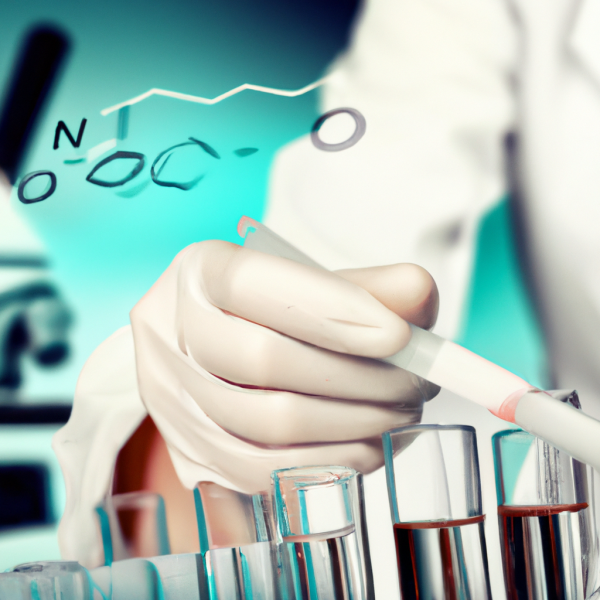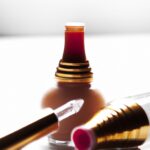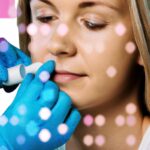The Importance of Clinical Testing in Luxury Cosmetics Production
High-end cosmetics brands understand the importance of offering their customers the best in quality, safety, and superior performance. That’s why luxury cosmetics companies invest heavily in clinical testing to provide customers with the assurance that their products can be used safely and will deliver the desired results.
Clinical testing is the process of testing a cosmetics product under controlled conditions to assess its performance, safety, and efficacy. By conducting comprehensive clinical tests, luxury cosmetics brands can ensure that their products meet the highest standards for quality control before they enter the market.
This article provides an in-depth look at clinical testing in luxury cosmetics production and answers some of the most common questions about this important process.
What is Clinical Testing?
Clinical testing is the process of testing a cosmetics product in a laboratory setting in order to determine its safety, performance, and efficacy. Clinical tests are usually conducted in-house by cosmetics companies’ research and development teams. The objective is to evaluate the product’s stability, consistency, ingredients, shelf life, and any potential adverse side effects.
The rigorous process involves detailed analysis of the ingredients, as well as application of the product to skin, eyes, or hair and testing how it reacts under clinical conditions. The safety and efficacy of the product will be assessed by studying the reactions of an approximated number of volunteers. Subjects are usually monitored closely while they are testing the product.
Why Are Clinical Tests Conducted?
Clinical tests are conducted to ensure luxury cosmetics products meet the highest standards for quality and consumer safety. The tests process helps cosmetics manufacturers identify any potential risks associated with their product before it enters the market. The results of the tests are used to refine the product, improve its safety and efficacy, and ensure it meets the highest industry standards.
Types of Clinical Tests for Luxury Cosmetics
Clinical tests for luxury cosmetics products vary based on the type of product. Common types of tests used in luxury cosmetics production include:
• Dermatological Tests:
These tests involve testing the product’s safety when applied to human skin. Common dermatological tests include skin sensitivity and irritation tests, eye irritation tests, allergic contact dermatitis tests, and phototoxicity tests.
• Clinical Performance Tests:
These tests examine the product’s performance and efficacy against specific performance claims. Examples of performance tests include anti-aging tests, sunscreen tests, moisturizer tests, and hair growth or anti-frizz tests.
• Product Stability Tests:
Stability tests evaluate the product’s shelf-life and ensure its consistency over time, as well as its ability to resist changes in temperature, humidity, light, and other environmental factors.
What Are the Benefits of Conducting Clinical Tests?
The primary benefit of conducting clinical tests on luxury cosmetics products is ensuring the safety and efficacy of the product before it enters the market. As a result, users can trust that the products will be safe for use and will deliver the desired results.
In addition, conducting clinical tests helps to establish trust with customers and can help improve customer loyalty. Customers are more likely to trust and buy products that have been rigorously tested and proven to be safe and effective.
FAQs
Which is the most important clinical test for a luxury cosmetics product?
The most important clinical test for a luxury cosmetics product is usually the dermatological test, since it evaluates the product’s safety when applied to human skin. This test also helps to identify any potential risks associated with the product before it enters the market.
Is it necessary to conduct clinical testing for luxury cosmetics products?
Yes, it is necessary to conduct clinical testing for luxury cosmetics products in order to ensure their safety and efficacy. Clinical testing helps manufacturers identify any potential risks associated with their product before it enters the market and helps to establish trust with customers by proving that their product can be used safely and will deliver the desired results.
Who conducts clinical tests for luxury cosmetics products?
Clinical tests for luxury cosmetics products are usually conducted in-house by cosmetics companies’ research and development teams. However, some brands may also choose to partner with outside laboratories or clinical testing companies to make sure the product meets the highest standards for quality and safety.
The Role of Clinical Testing in Luxury Cosmetics Production
When it comes to luxury cosmetics, quality, safety, and superior performance are paramount. High-end cosmetics brands understand the significance of clinical testing in providing their customers with the assurance that their products are not only safe but also deliver the desired results. Clinical testing plays a vital role in ensuring that luxury cosmetics meet the highest standards for quality control before they enter the market. Let’s delve deeper into the importance of clinical testing and its benefits for luxury cosmetics production.
What is Clinical Testing?
Clinical testing involves subjecting cosmetics products to rigorous tests and evaluations in a controlled laboratory setting. The aim is to assess the product’s performance, safety, and efficacy. Luxury cosmetics companies typically conduct these tests in-house through their dedicated research and development teams. By conducting comprehensive clinical tests, cosmetics brands gain valuable insights into the stability, consistency, ingredients, shelf life, and any potential adverse side effects of their products.
During clinical testing, the product is applied to the skin, eyes, or hair to observe its reactions under controlled conditions. The safety and efficacy of the product are assessed by closely monitoring the reactions of a predetermined number of volunteers. This meticulous process ensures that luxury cosmetics undergo thorough evaluation before they are made available to consumers.
Why Are Clinical Tests Conducted?
Clinical tests are conducted to uphold the highest standards of quality and consumer safety in luxury cosmetics production. By subjecting their products to rigorous testing, manufacturers can identify and mitigate any potential risks before the products reach the market. The valuable insights obtained from clinical testing enable brands to refine their products, improve safety and efficacy, and ensure compliance with industry standards.
Types of Clinical Tests for Luxury Cosmetics
Different types of clinical tests are employed in luxury cosmetics production, depending on the nature of the product. Some common types of clinical tests include:
Dermatological Tests:
These tests focus on evaluating the safety of luxury cosmetics when applied to human skin. Dermatological tests encompass a range of evaluations, such as skin sensitivity and irritation tests, eye irritation tests, allergic contact dermatitis tests, and phototoxicity tests.
Clinical Performance Tests:
Clinical performance tests assess the product’s performance and efficacy in relation to specific claims. Examples include anti-aging tests, sunscreen tests, moisturizer tests, and tests for hair growth or anti-frizz properties.
Product Stability Tests:
Stability tests ensure that luxury cosmetics maintain their consistency and effectiveness over time. These tests assess the product’s shelf life, as well as its ability to withstand changes in temperature, humidity, light, and other environmental factors.
What Are the Benefits of Conducting Clinical Tests?
Conducting clinical tests on luxury cosmetics products offers several notable benefits. The primary advantage is the assurance of product safety and efficacy. By undergoing comprehensive testing, luxury cosmetics gain credibility, assuring users that they can be used safely and will deliver the desired results.
In addition to ensuring safety, clinical testing helps establish trust with customers, fostering customer loyalty. Consumers are more likely to trust and purchase products that have undergone rigorous testing, providing scientific evidence of their safety and effectiveness.
To summarize, clinical testing is a critical component of luxury cosmetics production. By subjecting products to rigorous evaluations, manufacturers can guarantee the safety, quality, and performance of their offerings. Consequently, customers can confidently embrace luxury cosmetics, knowing that their favorite brands prioritize their well-being and satisfaction.






